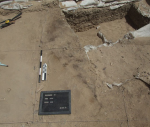You are here
This has got to stop!
Nov 08,2018 - Last updated at Nov 08,2018
That our society suffers overall from a split, even bipolar, personality has been widely known for some time now. That the dark side of this split self, the alter ego, has taken over is a more recent development.
Many close observers of people’s behaviour in our society have, for decades, pointed to a built-in contradiction. The very same person is extremely polite, considerate, courteous and meek in some contexts; and extremely impolite, inconsiderate, rude and rough in others.
At home, you see all of the former attributes embodied in the conduct of the individual, who is so sweet, welcoming and generous; in the public sphere, you see the opposite trends.
When you meet with a person one-on-one, you see the same positive attributes reflected in his/her demeanour; when this same person sits behind the wheel and drives, you see an entirely different person: often a demon.
In their homes and in their cars, people are clean; in public spaces they litter cold-bloodedly.
One of the best studies of this phenomenon, the doubleness in behaviour, is Hisham Sharabi's classic book, written in Arabic, "An Introduction to the Study of Arab Society," which I read as an undergraduate.
Examples of this duality abound, and this and more we have known for years, and have gotten accustomed to.
The more recent, and troubling, development about which almost all of us are complaining, but many are practicing nonetheless, is the triumph and dominance of the darker, negative side.
It is as if the sweeter, meeker, positive side has been entirely overpowered, and the darker, harsher, negative one has won and prevailed.
It is as if a demon is on the loose, and narcissism, neurosis, suspicion, paranoia and the urge to murder are everywhere.
We see this reflected most vividly and visibly these days in social media, of course, where negativity, cynicism, rumour, falsehood, satire, insult, character assassination and witch-hunting prevail.
While this troubling phenomenon was, a few years back, marginal and even tolerable; at present, it has become a problem, a plague and even a threat to the country. And this is no joke.
A friend of mine said, when we were discussing the phenomenon a few days ago: "I was never afraid for Jordan throughout the years of the so-called Arab Spring, which brought many regimes and countries down, but I am afraid for Jordan now." Because of this demon, which is in all of us.
So much negativity prevails, and it is so threatening, which led His Majesty King Abdullah to devote an important article to the matter.
But we see the same demonic behaviour in the formal media, especially privately-owned electronic outlets, which feed people, and social media, with venom.
And we see aggressive behaviour and negativity in motoring, in wedding processions, in public gatherings, in front of prayer venues as soon as prayers are over, in parliamentary debates, in seminars, in outings, in schools and on campuses.
And now the government, to add insult to injury, seems to have joined the chorus. It has yet to give us one serious piece of good news. All we hear about are depressing problems and scandals. We have yet to hear from a government that seems to be lost in details and side issues about one solid, cheering project, accomplished or even planned.
An observer of discourse in our society, both the discourse of the public and the discourse of the government, will get the impression that Jordan is the most inefficient, corrupt, problem-plagued country in the world.
This is not true.
There are so many good achievements, so many success stories, so many successful institutions and so much to be thankful for. And we need to build on this, and to be optimistic and focus on what will pull us out of this quagmire of negativity and petting thinking and petty policies.
What is drowning all of the positivity and constructivism is that nearly all in our society are dancing to the negative, somber and evil tunes.
This has got to stop.














